第9章 INTRODUCTORY NOTE(9)
Lack of self-discipline, of intelligence, of patience, of personal effort--these are the corner-stones on which corporal punishment rests. I do not now refer to the system of flogging employed by miserable people year in and year out at home, or, particularly in schools, that of beating children outrageously, or to the limits of brutality. I do not mean even the less brutal blows administered by undisciplined teachers and parents, who avenge themselves in excesses of passion or fatigue or disgust,--blows which are simply the active expression of a tension of nerves, a detestable evidence of the want of self-discipline and selfculture. Still less do I refer to the cruelties committed by monsters, sexual perverts, whose brutal tendencies are stimulated by their disciplinary power and who use it to force their victims to silence, as certain criminal trials have shown.
I am only speaking of conscientious, amiable parents and teachers who, with pain to themselves, fulfil what they regard as their duty to the child. These are accustomed to adduce the good effects of corporal discipline as a proof that it cannot be dispensed with. The child by being whipped is, they say, not only made good but freed from his evil character, and shows by his whole being that this quick and summary method of punishment has done more than talks, and patience, and the slowly working penalties of experience. Examples are adduced to prove that only this kind of punishment breaks down obstinacy, cures the habit of lying and the like. Those who adopt this system do not perceive that they have only succeeded, through this momentarily effective means, in repressing the external expression of an evil will. They have not succeeded in transforming the will itself. It requires constant vigilance, daily self-discipline, to create an ever higher capacity for the discovery of intelligent methods. The fault that is repressed is certain to appear on every occasion when the child dares to show it. The educator who finds in corporal punishment a short way to get rid of trouble, leads the child a long way round, if we have the only real development in view, namely that which gradually strengthens the child's capacity for self-control.
I have never heard a child over three years old threatened with corporal punishment without noticing that this wonderfully moral method had an equally bad influence on parents and children. The same can be said of milder kinds of folly, coaxing children by external rewards. I have seen some children coaxed to take baths and others compelled by threats. But in neither case was their courage, or self-control, or strength of will increased. Only when one is able to make the bath itself attractive is that energy of will developed that gains a victory over the feeling of fear or discomfort and produces a real ethical impression, viz., that virtue is its own reward.
Wherever a child is deterred from a bad habit or fault by corporal punishment, a real ethical result is not reached. The child has only learnt to fear an unpleasant consequence, which lacks real connection with the thing itself, a consequence it well knows could have been absent. Such fear is as far removed as heaven from the conviction that the good is better than the bad. The child soon becomes convinced that the disagreeable accompaniment is no necessary result of the action, that by greater cleverness the punishment might have been avoided. Thus the physical punishment increases deception not morality. In the history of humanity the effect of the teaching about hell and fear of hell illustrates the sort of morality produced in children's souls by corporal punishment, that inferno of childhood. Only with the greatest trouble, slowly and unconsciously, is the conviction of the superiority of the good established. The good comes to be seen as more productive of happiness to the individual himself and his environment. So the child learns to love the good. By teaching the child that punishment is a consequence drawn upon oneself he learns to avoid the cause of punishment.
Despite all the new talk of individuality the greatest mistake in training children is still that of treating the "child" as an abstract conception, as an inorganic or personal material to be formed and transformed by the hands of those who are educating him. He is beaten, and it is thought that the whole effect of the blow stops at the moment when the child is prevented from being bad. He has, it is thought, a powerful reminder against future bad behaviour. People no not suspect that this violent interference in the physical and psychical life of the child may have lifelong effects. As far back as forty years ago, a writer showed that corporal punishment had the most powerful somatic stimulative effects. The flagellation of the Middle Ages is known to have had such results; and if I could publish what I have heard from adults as to the effect of corporal punishment on them, or what I have observed in children, this alone would be decisive in doing away with such punishment in its crudest form. It very deeply influences the personal modesty of the child. This should be preserved above everything as the main factor in the development of the feeling of purity. The father who punishes his daughter in this way deserves to see her some day a "fallen woman." He injures her instinctive feeling of the sanctity of her body, an instinct which even in the case of a small child can be passionately profound. Only when every infringement of sanctity (forcible caressing is as bad as a blow) evokes an energetic, instinctive repulsion, is the nature of the child proud and pure. Children who strike back when they are punished have the most promising characters of all.